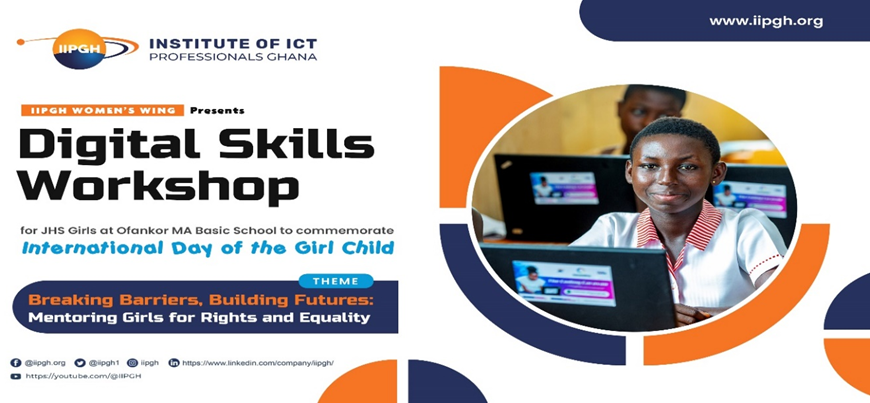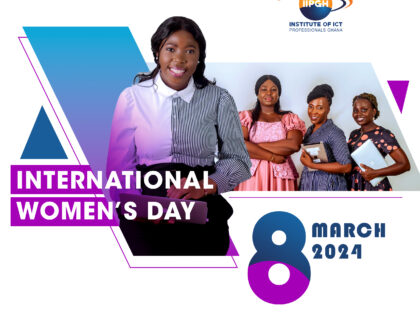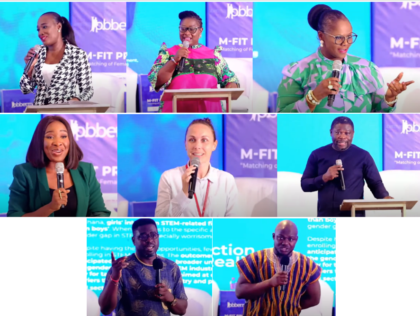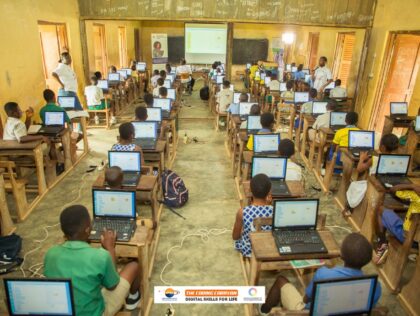IIPGH Women’s Wing Partners IoT Network Hub to Organize Digital Skills Workshop for 150 Girls
Mama I wanna go to school
Papa I wanna be in school
I wanna learn reading and writing
Teacher, I wanna be in school…
Send your Girl Child to school…
The International Day of the Girl Child, also known as the International Day of the Girl, is an observance that was established by the United Nations. It was created to promote the rights of girls and address the unique challenges they face around the world. The day is celebrated on October 11th each year and serves as a platform to raise awareness about issues affecting girls, including gender inequality, discrimination, and violence.
The history of the International Day of the Girl Child can be traced back to the United Nations General Assembly’s adoption of a resolution on December 19, 2011, declaring October 11th as the International Day of the Girl Child, recognizing the importance of addressing the specific needs and rights of girls. The establishment of this day was a significant step in acknowledging the need to empower and support girls globally, highlight the importance of promoting gender equality and ensuring that they have access to education, healthcare, and opportunities for personal and social development.
Now!
The song at the beginning used to be one of the many prominent appeals made by a lot of gender activists across the world for the rights of Girls. Although the problem of accessibility to education for girls hasn’t been completely eradicated, significant strides have been made in that regard, enough to enable us to also focus on other similar important issues. The 1990s saw important legal and policy changes. The Beijing Declaration and Platform for Action was adopted in 1995 at the Fourth World Conference on Women, outlining key principles for gender equality and the empowerment of women. Organizations and movements like #MeToo have highlighted the prevalence of sexual harassment and assault and have promoted a culture of accountability. The Convention on the Elimination of All Forms of Discrimination Against Women (CEDAW) gained ratifications, with more countries committing to eliminate discrimination against women.
IIPGH Women’s Wing
The Women’s Wing of the Institute of ICT Professionals Ghana (IIPGH), as part of its “Digital Girls” initiative and to commemorate the International Day of the Girl Child, organized a 1-day workshop on Friday 13th October 2023, for one hundred and fifty (150) Junior High School Girls at the Ofankor MA Basic School in partnership with the IoT Network Hub. This workshop was divided into three (3) concurrent sessions. There was a 3D Design/Scratch session, a Mentoring Session and Internet of Things (IoT) session. Students took turns participating in each session, guaranteeing that everyone derived value from every session.
3D Design and Scratch
Dorothy Klutse (Digital skills Instructor, IIPGH) and Deborah Ofori-Dartey (Digital Skills Training Supervisor, IIPGH) introduced the students to 3D design basics, teaching them how to design their own 3D objects and the process of printing them out. By the end of the session, they had learnt the various parts of the 3D printer and putting shapes together to form an object.

They were briefly engaged in creating a simple animation using Scratch, a free programming tool for creating animations and games, developed by the Massachusetts Institute of Technology (MIT) and is used worldwide to teach children the concepts of Coding in an interactive and easily understandable way. The students were guided to create an animation of a lady singing the song mentioned at the beginning of this article.
Mentoring
The theme adopted by the Women’s wing this year – “Breaking Barriers, Building Futures: Mentoring Girls for Rights and Equality”, resonates well with the main theme adopted by the United Nations’ – “Invest in Girls’ Rights and Leadership,” and emphasizes the significance of empowering girls as leaders within their communities. The IIPGH women’s “Digital Girls” initiative actively promotes girls’ involvement in STEM fields while addressing the technology industry’s existing gender gap. It provides girls with the necessary tools and support to excel in tech-related areas. During this session, IIPGH Women encouraged the JHS girls to pursue STEM courses. The aim was to understand the challenges and obstacles these girls encounter and offer them solutions to achieve their goals. Juliana Ametorwogo (Director, Women in Tech, IIPGH) and Mrs. Gifty Mottey (Administrative Director, IIPGH), presented themselves as mentors and women in STEM who have excelled in their fields, inspiring girls to break free from misconceptions and stereotypes. Christiana Ankrah (Girl Child Coordinator, Ga North Municipal Education Directorate) encouraged the girls to invest in themselves even as stakeholders are investing in them, so they could safely acquire the level of education that they seek, to ensure that they also become the changemakers the world is looking out for. They encountered myths like girls being told they are too small for science or equating engineering to car repairers wearing dirty clothes and working under cars.

However, by the end of the session, they witnessed a group of motivated girls ready to make a difference in their communities and lives, who now understood that they are perfectly capable of overcoming challenges and excelling in what they once considered difficult subjects. They discussed with them the latest technological trends and urged them to embrace and keep abreast with technology, ensuring they are never left behind. They provided real-life examples of how technology has transformed daily living, simplifying various aspects. The girls were inspired to consider roles in ICT, to enable them to develop tailored solutions for Ghanaian women within cultural contexts. It was truly exciting to witness the girls’ happiness as industry professionals came to engage with them.
Internet of Things (IoT)
The team from IoT Network Hub – Irene Klu and Bernice Ama Essel, took the girls through the merging of electronics and code using the STEMaide kit which comprises components such as LEDs. Breadboard, jumper wires, Arduino Uno, etc. The girls programmed an LED to switch on and off. This was done by connecting the jumper wires and LEDs onto the Arduino Uno which was powered by a computer. The second stage is where they write the code using a computer programming language called C++. They use this language to send codes (instructions) from the computer to the circuit created, making the LED switch come on and off. A real-world case is using this technology to automatically switch lights on and off based on a preprogrammed time, helping to reduce one’s cost of electricity. They were then tasked to replicate what they had been taught, in groups and the group with the best presentation was awarded.

All three sessions were an exciting opportunity to interact with the girls and impart important skills into their lives, thus giving them a glimpse into the numerous possibilities available to them.
The evolution of women’s and girls’ rights is an ongoing process. While significant strides have been made, there is still work to be done to achieve full gender equality and address persistent issues. The efforts of governments, organizations, activists, and individuals continue to play a crucial role in advancing women’s and girls’ rights around the world and the Institute of ICT Professionals Ghana is fully committed to this course.

Please Scan / Click QR code to watch video story.
Author: Deborah Ofori-Dartey
The author specializes in Block-Coding for Children. She is the Digital Skills Training Supervisor for the Institute of ICT Professionals Ghana (IIPGH). For comments, contact via +233242912027 or email deborah.dartey@iipgh.org





